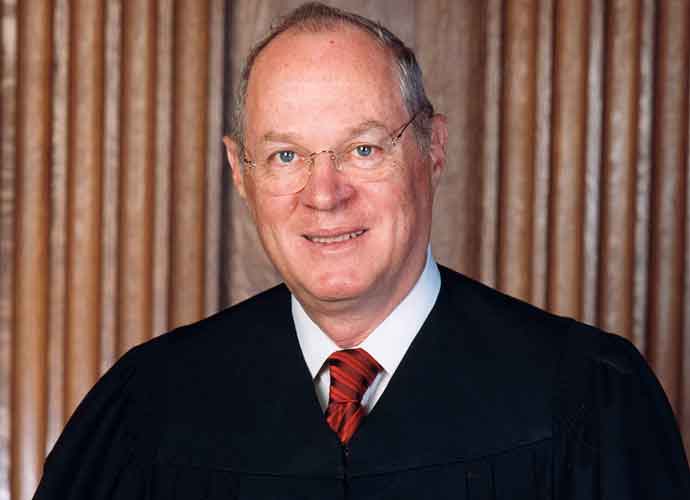Justice Anthony Kennedy Announces Retirement From Supreme Court
On Wednesday, Justice Anthony Kennedy revealed he will retire on July 31, thus paving the way for President Donald Trump to continue reshaping the Supreme Court into a heavily conservative one.
Anthony Kennedy To Retire From Supreme Court
Kennedy, who will be 82 next month, is known for being liberal on many issues including women’s rights, gay rights and the death penalty. He and Ruth Bader Ginsburg are judges who have been rumored for several months to soon step down from the Supreme Court. Justice Neil Gorsuch — whom Trump appointed in April 2017, has been viewed by many as even more right-wing than the judge he replaced — Antonin Scalia, who died in February 2016. Then-president Barack Obama had nominated appeals court judge Merrick Garland — who was known for being very middle-of-the-road — to replace Scalia, but Republican lawmakers refused to confirm that pick.
Kennedy’s resignation means Trump could affect the Supreme Court’s leadership for decades to come. The court recently made two decisions that have severely angered liberals. One of them was a choice made on Tuesday to uphold the current administration’s travel ban on citizens from Muslim-majority nations. The other was a ruling in favor of a baker in Colorado who refused to make a cake for a same-sex couple, citing his religious beliefs as a reason for denying service.
Subscribe to our free weekly newsletter!
A week of political news in your in-box.
We find the news you need to know, so you don't have to.
“Please permit me by this letter to express my profound gratitude for having had the privilege to seek in each case how best to know, interpret and defend the Constitution and the laws that must always conform to its mandates and promises,” Kennedy wrote in his resignation letter to Trump. The president called the judge a man with “tremendous vision and tremendous heart.”
Chief Justice John Roberts — who was appointed by George W. Bush — could now serve as the deciding vote for many cases ruled on by the nine-judge court, which may count four conservatives and four liberals apart from himself.
Kennedy ruled as a moderate conservative on certain issues, however. In 2010, he ruled in favor of Citizens United, which permitted unlimited campaign spending by unions and companies. He also ruled in favor of granting Bush the presidency in 2000’s Bush vs. Gore. In certain cases related to voting and gun rights, he also agreed with conservative judges.
The Senate ultimately approves judicial nominations. Thus, should Democrats regain majority in this house, this could also profoundly determine whether or not Supreme Court justices are confirmed.
Senate Minority Leader Chuck Schumer, a Democrat from New York, recently said in a speech on the Senate floor that his fellow officials should not “consider a Supreme Court justice in an election year,” adding that “anything but that would be the absolute height of hypocrisy.” Schumer used the example of Republicans blocking Obama’s nomination of Garland in 2016, an election year, as a reminder.
Shortly after Kennedy announce his resignation, many women jumped on social media to urge female voters to obtain IUDs (intrauterine devices) as soon as possible. Kennedy was known for ruling in favor of abortion and other reproductive rights, and millions of American women are now likely concerned that a potentially conservative Supreme Court will seek to strip away those rights. Kennedy helped to retain Roe vs. Wade, a landmark abortion case, in 1973.
Roe vs. Wade began trending on Twitter soon after the decision:
Get the most-revealing celebrity conversations with the uInterview podcast!






Leave a comment